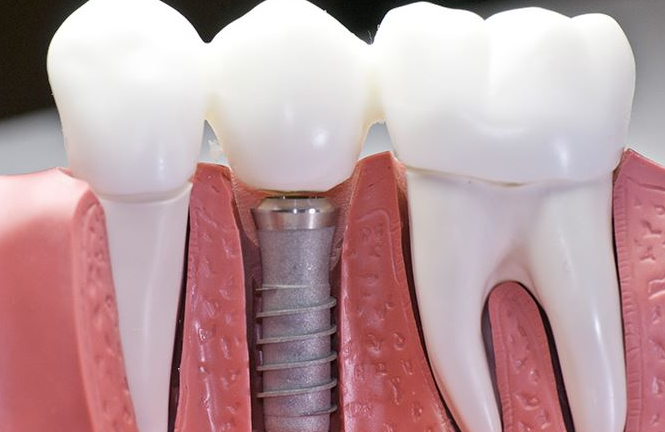
The American College of Prosthodontists suggests that up to 120 million Americans have at least one tooth missing. It goes on to reveal that more than 36 million Americans hardly have any teeth at all. While dentures can prove challenging to wear or make talking or even chewing an issue, dental implants have come to change how the lost tooth is treated. If you or your loved one is looking for Waterford dental implants, then you are sure to get the ideal ones that will provide a replacement tooth that feels, looks, and functions like your natural teeth.
What are dental implants?
These are titanium cylinder screws that your dental surgeon places into your jawbone in the location you have a missing tooth. The dentist ensures that they are first in place before they mount a replacement tooth/teeth onto them. The replacement tooth is also referred to as a crown and it looks and feels just as natural as your real teeth.
What are the types of dental implants?
There are two types of dental implants:
Endosteal implants
These are a type of dental implant that is surgically implanted on the jawbone. After the surgery and the surrounding jawbone area is healed, one needs a second surgery to connect a post to the original implant. After that, an artificial tooth gets attached to the post individually. They can also be joined as a group on a denture.
Subperiosteal implants
These are the ones that are used on individuals who lack enough healthy jawbone. Therefore, a metal frame is fitted onto their jawbone just below the gum tissue, and as the gum heals, this frame gets fixed to the jawbone. After this, posts are attached to the frame and they protrude through the gums. The artificial tooth or a set of artificial teeth are then mounted on the bars just as with the endosteal implants.
Who Needs Dental Implants?
Placing dentures and bridges on some people may be impossible or uncomfortable, especially if you have poor ridges, sore spots, or gagging. The ordinary bridges need to be attached to the teeth on either side of the spot left by the missing teeth. The ideal candidate for a dental implant, therefore, needs to have the following:
- Healthy gums
- Observed excellent oral hygiene habits and must have visited the dentist to ensure they are fit to have a dental implant
- Have adequate bone for supporting the dental implant
- Is a candidate for bone grafting
The benefits of dental implants
There are several options for replacing your missing or damaged tooth. Dental implants have benefits that most or all other replacement options do not have. The benefits of these implants include:
- Prevents bone loss
- They match your natural teeth
- Enable natural speech
- They prevent your face from changing due to tooth loss
- Restore bite force
- They do not get cavities
A missing tooth can cause one to feel self-conscious when talking, smiling, or even eating. They also may create oral health issues. Contact your specialist to have all your dental concerns addressed.